Guaranteed Next Day Delivery!
Skip Bins for Waste Types
The team at Skip Bin Finder is conscious of the waste we handle and how we dispose of it. We are completely transparent and straightforward about our waste types to ensure your rubbish goes in the right place and remains environmentally and socially responsible.
It’s integral to get the right type of bin for the waste you want to dispose of, abide by strict waste facility guidelines, and avoid any additional charges.
What can never go in a skip bin?
The items which must never be put in a skip bin include the following –
- Asbestos
- Oil
- Paint
- Thinners
- Gas cylinders
- Hazardous/chemical waste
- Tyres
- Batteries
- Electronic waste
These items all pose a danger to the general public, to you, and to those people handling the skip bin. Furthermore, some items, such as batteries and electronic waste, are a fire hazard—they have been known to combust, causing fires within skip bins spontaneously.
Other things, such as asbestos, require specialist removal and disposal.
Be sure to take care when filling your skip bin to prevent accidental disposal of any of these items.
House clearances are particularly tricky as it is easy to miss a battery or old mobile phone when emptying old drawers or cabinets.
Go through the rubbish carefully, and if you find any flammable or dangerous substances, set them aside to be disposed of separately.
Most councils in Australia have special facilities that deal with electronic waste, tyres and liquids like oils and paint.
Contact your local council to learn more about disposing of these things locally.
Asbestos removal needs to be organised with a professional expert in the field. Asbestos removal requires specialist training and equipment as it is highly unstable and dangerous.
For more information on asbestos, including how to identify it, please visit a guide provided by Healthdirect Australia.
We recommend you follow our guide below when selecting the bin that fits your needs.
What Can Go In A General Waste Bin?
Household waste
Clothes, paper, cardboard, bedding, towels, kitchenware, bathroom accessories, duvets, cushions
Light commercial waste
Office furniture such as desks, desk tidies, chairs, and stationery.
Furniture and Appliances
Cupboards, lounges, washing machines, cots, beds, fridges, chairs, sofas
Light building construction waste
Wood, flooring, wallpaper
Light green waste
Shrubs, grass, foliage, leaves, twigs
What Can Not Go In A General Waste Bin?
Hard, heavy materials
Bricks, sand, concrete, tiles, clay, stones
Soil or soil with turf attached
A soil dirt bin is required for this waste
Palm tree trunks, tree trunks, roots or turf
a soil dirt bin is required for this waste
Synthetic grass
Carpet must not be disposed of in this bin in NSW
Computers or TV screens must not be disposed of in this bin in SA
Asbestos, insulation, food, wet paint, empty chemical containers, liquids or putrescible
What Can Go In A Green Waste Bin?
Light green waste
Shrubs, foliage, grass clippings, leaves, twigs
Small branches, leaves and palm fronds
Woodchip and bark – there must be no soil attached to either
Tree trunks – The diameter must be smaller than 150mm and under 500mm long to meet the requirements
Untreated timber – please contact us to enquire how to dispose of treated timber
What Can Not Go In A Green Waste Bin?
Hard, heavy materials
Bricks, sand, concrete, tiles, clay, stones
Large tree trunks
Trunks that are larger than 150mm in diameter or over 300mm long are not permitted in this bin
Palm tree trunks and/or large tree roots
Hazardous materials that must not be placed in this bin include:
Asbestos, insulation, food, wet paint, empty chemical containers, liquids, or putrescible
What Can Go In A Concrete/Brick Waste Bin?
Bricks and/or bricks and mortar
Concrete – any concrete must be no bigger than 600×600
Roof tiles
Floor tiles
Pebbles
Rocks
Stones
What Can Not Go In A Concrete/Brick Waste Bin?
General, green or excavation waste
Soil or turf – all soil must go in a soil/dirt bin
Palm trees and fronds
Sand, soil and dirt are strictly prohibited and must be exposed in the soil/dirt bin
Hazardous materials that must not be placed in this bin include:
Asbestos, insulation, food, wet paint, empty chemical containers, liquids, or putrescible
What Can Go In A Soil/Dirt Waste Bin?
Soil/dirt and clay that is naturally occurring.
What Can Not Go In A Soil/Dirt Waste Bin?
Vegetation that takes up more than 10% of the bin
Any general waste – please get a general waste bin for this
Contaminated soil
Manmade materials
Hazardous materials that must not be placed in this bin include:
Asbestos, insulation, food, wet paint, empty chemical containers, liquids or putrescible
This bin is strictly for soil or dirt, and no other waste can be disposed of via this medium
What Can Go In A Mixed Waste Bin?
Waste that comes from domestic, commercial demolition, construction or renovation
Hardfill waste
Bricks, concrete, tiles – all pieces must be no larger than 600×600
Treated timber
Retaining walls, decking, floorboards, fences, sheds
Household waste
Clothes, paper, cardboard, bedding, towels, kitchenware, bathroom accessories, duvets, cushions
Furniture and Appliances
Cupboards, lounges, washing machines, cots, beds, fridges, chairs, sofas
Green waste
Shrubs, foliage, grass clippings, leaves, twigs, bushes, palm trees
Tree trunks
Trunks must be smaller than 300mm in diameter and under 300mm long
